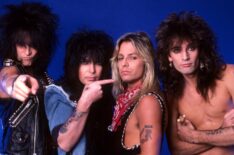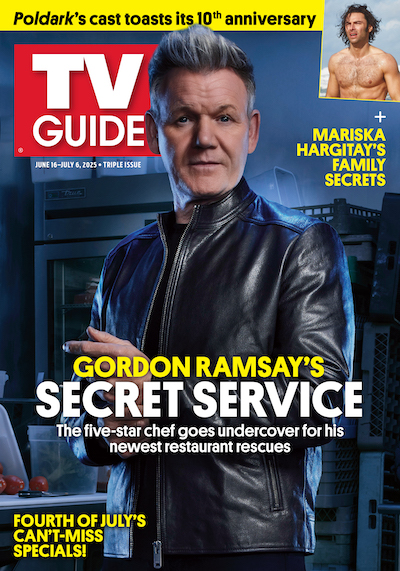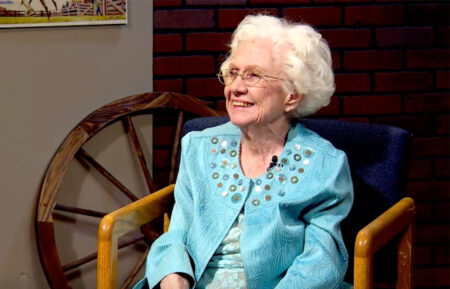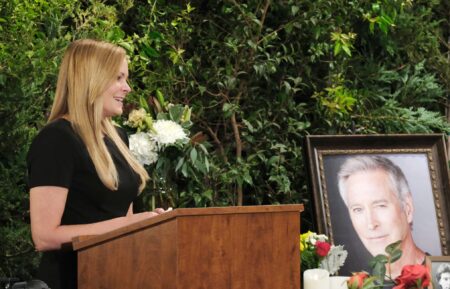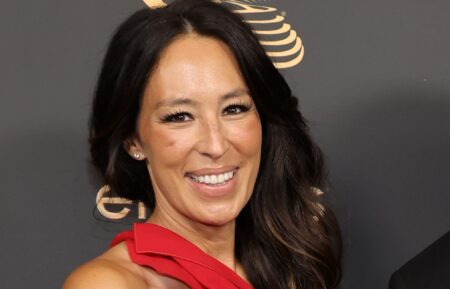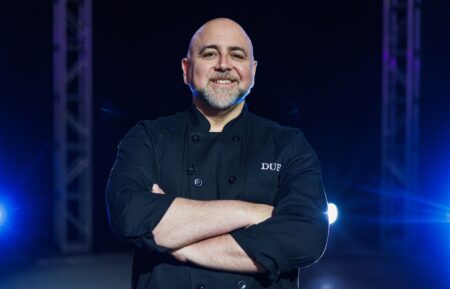‘Reggaetón: The Sound that Conquered the World’ EP on Collaborating with Daddy Yankee
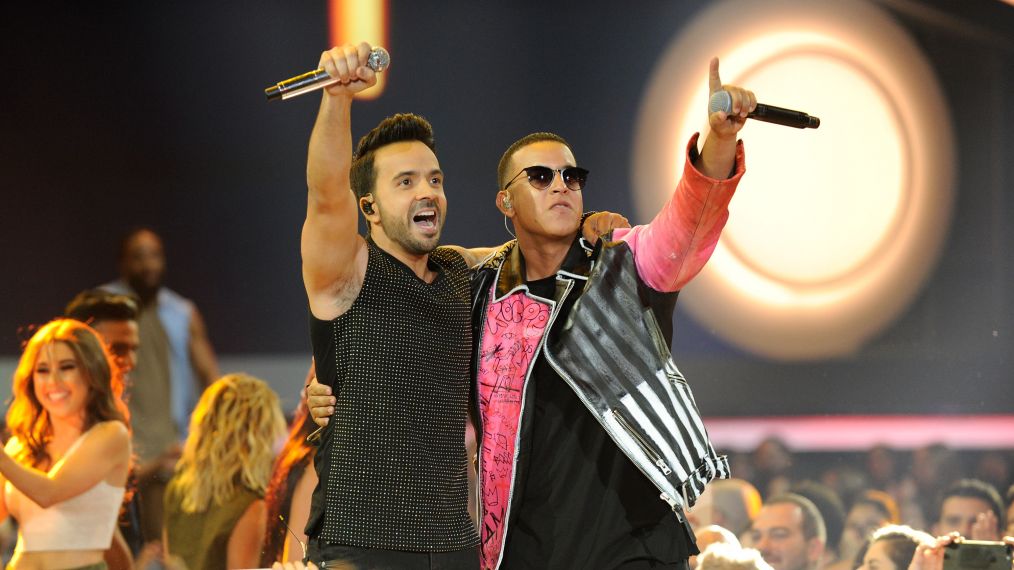
Q&A
A music genre born in the barrios of Puerto Rico permeated into the mainstream and up the charts. Its story is told through Reggaeton: The Sound that Conquered the World, a new docuseries from Peacock.
Executive producer and director Omar Acosta teamed up with Daddy Yankee to spotlight the cultural touchstones, evolution, and impact of Reggaeton. Daddy Yankee’s song Gasolina became a global phenomenon 20 years ago, solidifying him as the “King of Reggaeton.”
Others who helped put the Latin, hip-hop, and Caribbean-infused sound on the map are also interviewed for the docuseries. Names like Bad Bunny, Feid, Ivy Queen, J. Balvin, Karol G, Myke Towers, Nicky Jam, Rauw Alejandro, Shaggy, Vico C. and more.
Here Acosta provides insight on the making of the project and why it hits close to home.
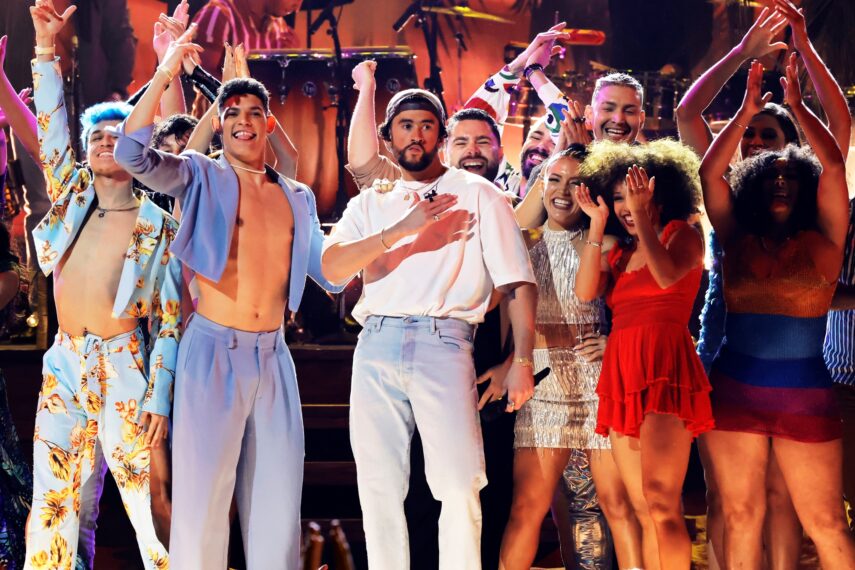
Bad Bunny performs onstage during the 2023 Grammy Awards (Kevin Winter/Staff)
Reggaeton is often lumped together with other genres of music. What was it like to show how the unique sound stands all its own?
Omar Acosta: It was important to me to tear down these preconceived notions. I was born and grew up in Puerto Rico. Reggaeton is a Puerto Rican genre. It has been through a lot, so we wanted to showcase that. We wanted to show this wasn’t something that just came out of nowhere. This is 15, 20 years in the making to get where it is today.
It’s said in the docuseries that Reggaeton wasn’t thought to last. A fad that would last just a couple of years. When did you feel it had that everlasting?
It’s funny because, in my previous life, I was one of the creative directors at MTV. I remember seeing Daddy Yanky do “Gasolina” when we aired that. I remember just seeing that amongst everything else going on. I thought. “Okay, this made it. This is here.” To me, it was that “Gasolina” moment.
How was it collaborating with Daddy Yankee for this project?
I’m honored to have collaborated with him on this. There is nobody else I would have wanted to do that with. He has been there since day one and is still here. We’re talking about generations at this point.
Talk about how these episodes are broken down and how you’re able to tell this story completely from its roots to where it is today.
We had to break it down into four episodes. We started out with a film and thought, “No, there is no possible way we could do this in 90 minutes.” We broke it up into two segments. Underground with how it started in Puerto Rico and how Reggaeton went global. That’s it in a nutshell.
This transcends just the music with an exploration of the cultural connection and political climate. How do you feel the episodes delve into these topics?
I thought it was important to do because it adds context. These things don’t happen out of nowhere. Amazing things happen usually because of the context and when it’s something that people have to persevere and go through. Politics set the stage for this particular moment. I was living in Puerto Rico around that time. It wasn’t nice. You left your house and the military was right there. Say you were driving and you got stopped, it was the military stopping you with a cop because the military couldn’t give you a ticket. The police had to, but that was their backup. It’s all context. Without that, we have nothing.
There are some of the biggest names in the industry from Daddy Yankee to Bad Bunny. For you, who was a big get you were what does it mean to have all these names participate?
I’m incredibly grateful to have everyone. To me, I’m still pinching myself that we could do this with Daddy Yankee. There are a lot of interesting stories. It’s the same with all my documentaries. I think you start to talk to one person and they take you down the rabbit hole and think you have to get these three other people. Then all of a sudden it’s five more. I was impressed with everybody.
What were some of the challenges you faced with this project?
I think the main challenge was keeping up with the culture because it’s a fast-moving genre that’s constantly spitting out artists. Just when we think we are done, there is a new artist making waves. We have to get this person. That was one of the main things.
What do you see for the future of Reggaeton?
I think one of the things we cover nicely in the documentary is how the sound evolves. I’m excited to see it continue to evolve. It’s one of these things where Reggaeton is challenging because it is under the same pattern, so you have to be creative to change that pattern. I think they’ve done a great job doing that. I’m excited about the future.
What do you want to say to viewers before they watch this?
I want them to go in, sit down, and have an amazing time. We’re excited this is coming out. It has been a minute and to see it come to light is a great thing. We started working on this around the pandemic. I think it was more of a conversation that me and Daddy Yankee had where it felt right. It was one of those things where we had the story. Now is the time to tell this story. It just felt right. We just went hard with it. We hope everyone likes it as there was a lot of love put into it.
Reggaeton: The Sound that Conquered the World, October 3, Peacock
From TV Guide Magazine
Behind the Scenes With Gordon Ramsay: 20 Years of Cooking Up TV Hits
The celebrity chef reflects on redefining culinary television and his fiery journey Hell’s Kitchen to Secret Service. Read the story now on TV Insider.

